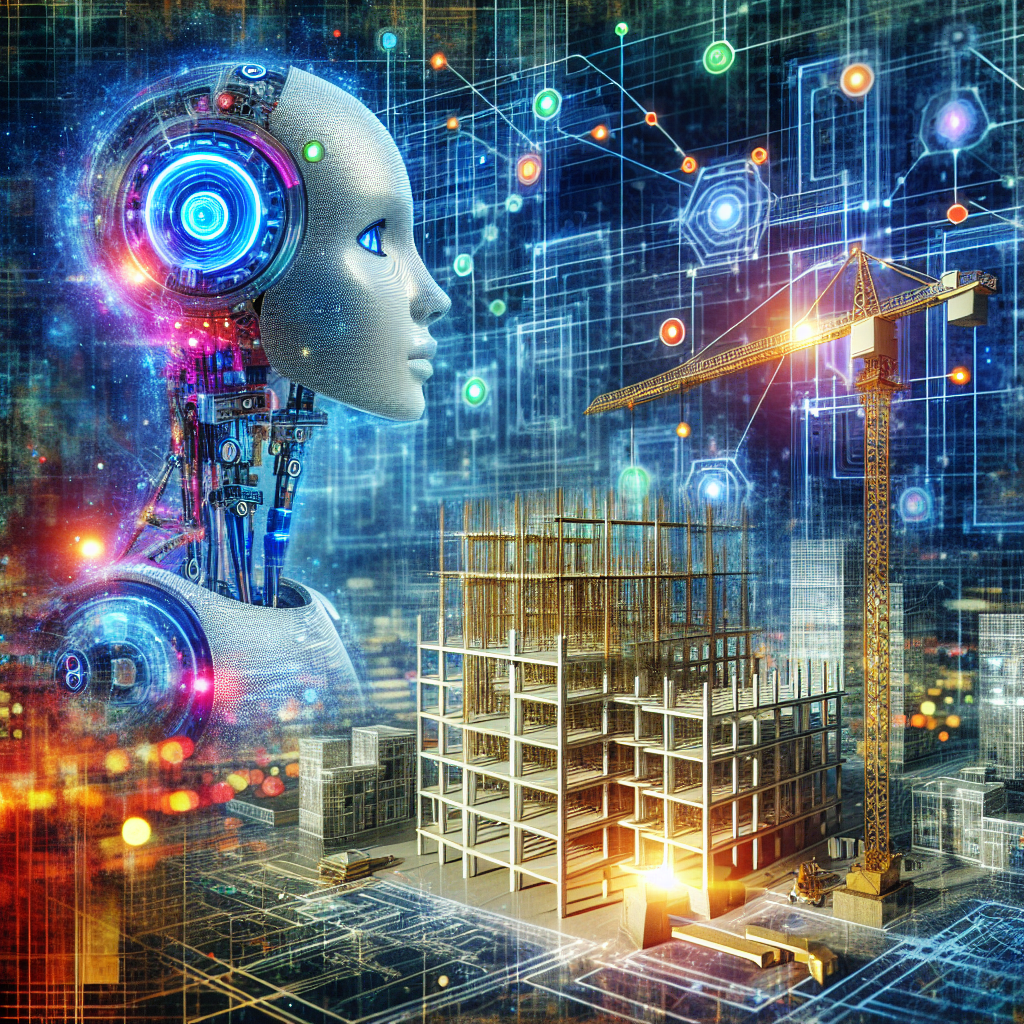The Future of AI in Construction Project Management
Artificial Intelligence (AI) is revolutionizing the way we approach project management in various industries, and the construction sector is no exception. With the rapid advancements in technology, AI is increasingly being integrated into construction project management to streamline processes, increase efficiency, and reduce costs. In this article, we will explore the future of AI in construction project management, its benefits, challenges, and potential impact on the industry.
Benefits of AI in Construction Project Management
1. Improved Planning and Scheduling: AI algorithms can analyze vast amounts of data to optimize project schedules, allocate resources efficiently, and identify potential risks. This can help construction companies to plan and execute projects more effectively, leading to better outcomes and reduced delays.
2. Enhanced Safety: AI-powered sensors and drones can monitor construction sites in real-time, detecting potential hazards and ensuring compliance with safety regulations. This can help to minimize accidents and injuries, creating a safer working environment for construction workers.
3. Cost Savings: By automating repetitive tasks and optimizing resource allocation, AI can help construction companies to reduce costs and improve their bottom line. This can be particularly beneficial for large-scale projects with complex logistics and tight budgets.
4. Quality Control: AI can analyze data from sensors and IoT devices to monitor the quality of construction materials, detect defects early on, and ensure that projects meet industry standards. This can help to prevent costly rework and delays, improving overall project quality.
5. Predictive Maintenance: AI algorithms can predict equipment failures and maintenance needs based on historical data, allowing construction companies to schedule maintenance proactively and avoid costly downtime. This can help to extend the lifespan of equipment and reduce maintenance costs.
Challenges of AI in Construction Project Management
1. Data Integration: One of the major challenges of implementing AI in construction project management is the integration of data from various sources, such as sensors, drones, and project management software. Ensuring that data is accurate, reliable, and accessible can be a complex and time-consuming process.
2. Skills Gap: AI technology requires specialized skills and expertise to develop and implement effectively. Construction companies may need to invest in training and upskilling their workforce to harness the full potential of AI in project management.
3. Privacy and Security Concerns: As AI algorithms rely on vast amounts of data to make informed decisions, there are concerns about data privacy and security. Construction companies must ensure that sensitive information is protected and comply with data regulations to prevent breaches and unauthorized access.
4. Resistance to Change: Implementing AI in construction project management requires a cultural shift within organizations, as employees may be resistant to new technologies and workflows. Change management strategies and clear communication are essential to overcome this barrier.
5. Cost of Implementation: While AI technology has the potential to deliver significant cost savings in the long run, the initial investment required for implementation can be high. Construction companies must carefully evaluate the ROI of AI solutions and develop a clear implementation strategy to maximize their benefits.
The Future of AI in Construction Project Management
Despite the challenges, the future of AI in construction project management looks promising, with the potential to transform the industry in the following ways:
1. Automated Project Management: AI-powered project management tools can automate routine tasks, such as scheduling, budgeting, and reporting, allowing project managers to focus on strategic decision-making and problem-solving. This can help to improve project efficiency, reduce errors, and accelerate project timelines.
2. Real-Time Monitoring and Analytics: AI algorithms can analyze real-time data from sensors, drones, and other IoT devices to provide insights into project progress, resource utilization, and performance metrics. This can help construction companies to make informed decisions quickly and adapt to changing conditions on the job site.
3. Predictive Modeling: AI can predict project outcomes and identify potential risks based on historical data and project parameters. This can help construction companies to develop contingency plans, optimize resource allocation, and minimize project delays, improving overall project performance.
4. Virtual Assistants: AI-powered virtual assistants can support project managers by answering queries, scheduling meetings, and providing updates on project status. This can help to streamline communication, increase productivity, and enhance collaboration within project teams.
5. Sustainable Construction Practices: AI can optimize building design, materials selection, and energy consumption to promote sustainable construction practices and reduce environmental impact. By analyzing data and identifying opportunities for improvement, AI can help construction companies to achieve their sustainability goals and comply with regulations.
FAQs
Q: How can AI improve safety in construction project management?
A: AI-powered sensors and drones can monitor construction sites in real-time, detecting potential hazards and ensuring compliance with safety regulations. This can help to minimize accidents and injuries, creating a safer working environment for construction workers.
Q: What are the key benefits of AI in construction project management?
A: The key benefits of AI in construction project management include improved planning and scheduling, enhanced safety, cost savings, quality control, and predictive maintenance. AI can help construction companies to optimize project schedules, monitor construction sites for safety hazards, reduce costs, ensure project quality, and predict equipment maintenance needs.
Q: What are the challenges of implementing AI in construction project management?
A: The challenges of implementing AI in construction project management include data integration, skills gap, privacy and security concerns, resistance to change, and cost of implementation. Construction companies must address these challenges to harness the full potential of AI technology and drive innovation in project management.
In conclusion, AI has the potential to revolutionize construction project management by improving planning and scheduling, enhancing safety, reducing costs, ensuring quality control, and predicting maintenance needs. While there are challenges to overcome, the benefits of AI in construction project management are significant and can lead to more efficient, sustainable, and successful projects in the future. By embracing AI technology and investing in training and development, construction companies can stay ahead of the curve and drive innovation in the industry.

